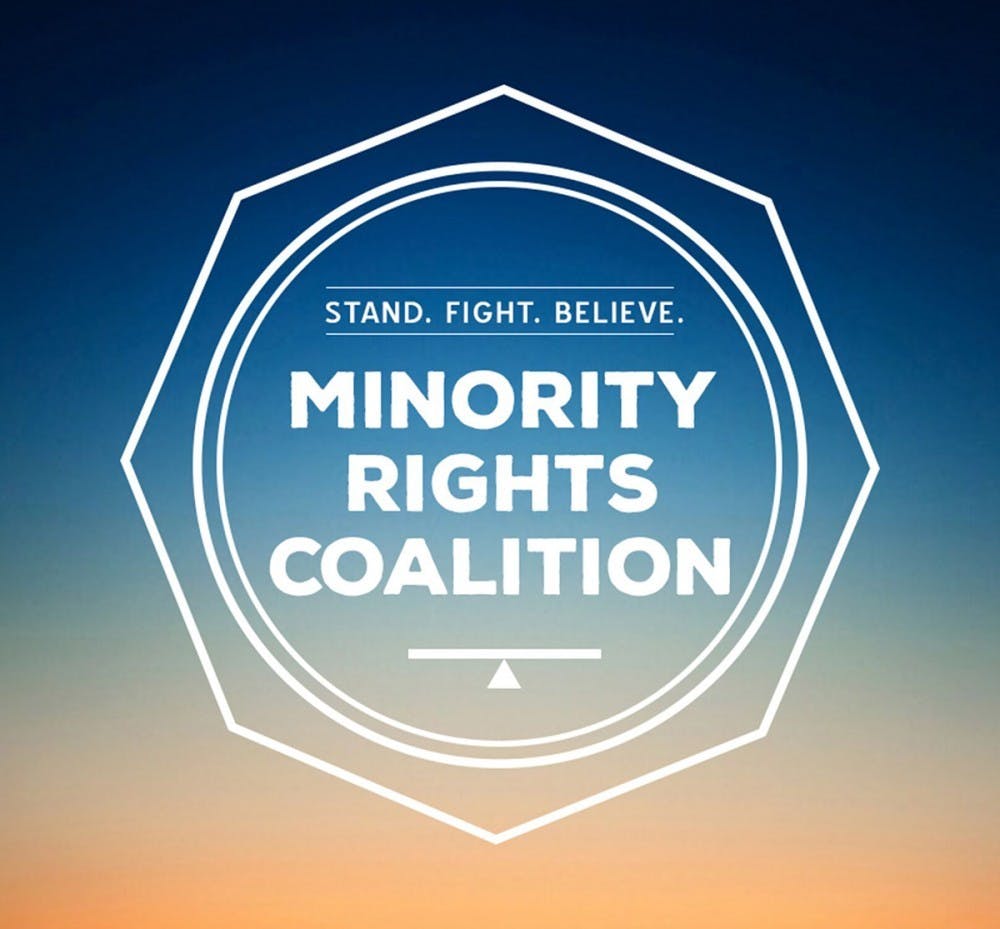Lea en español
Dani Alvarenga, third-year College student and president of the Cultural Organization for Latin Americans, educated a group of community members on COLA’s history and ongoing vision Monday night. The discussion was part of the Minority Rights Coalition’s Memory Mondays event series, which helps record the history and activism of different marginalized groups at the University.
The MRC — an umbrella organization representing a vast array of groups for marginalized students on Grounds — announced the series earlier this month as a way to maintain institutional memory of student activism on Grounds. Abena Appiah-Ofori, MRC chair and third-year College student, said she was inspired to create a series of student-led lectures detailing the history of a specific student group after realizing that most students on Grounds remain uneducated on pivotal instances of student activism in the University’s history.
Two weeks ago, the Black Student Alliance kicked off the series. Deric Childress Jr., president of the Black Student Alliance and fourth-year College student, discussed the history of Black student activism at the University, including campaigns leading up to the founding of the Office of African-American Affairs in 1976, protests in 2015 after Martese Johnson was unjustly beaten by officers with the Virginia Department of Alcoholic Beverage Control and the circulation of the BSA’s “Reiteration of Historic, Yet Unmet, Demands.”
Monday night, Alvarenga discussed the formation of COLA and the way it has transformed since its founding. The organization has existed at the University in several forms, beginning in 2000 as a University-run umbrella organization named La Alianza to bring together Hispanic and Latinx student leaders across Grounds.
The group opted to form its own separate organization in 2008 to have autonomy from the University and rebranded itself as the Latino Student Alliance, which was changed to Latinx Student Alliance to be more gender inclusive in 2017.
"Our organization focuses its efforts on celebrating the diversity of cultures and identities that exist in Latin America rather than promoting the idea of one monolithic ‘Latinx community,’” Alvarenga said.
Numerous groups split off from the main organization in 2018 to form Political Latinxs United for Movement and Action in Society, the Central Americans for Empowerment at UVA and the Afro-Latinx Student Organization. PLUMAS focuses on activism, while CAFE and ALSO offer spaces for healing and activism for those of more specific marginalized identities.
The aftermath of George Floyd’s murder and a national and local reckoning over the role of race in American society in 2020 led LSA to consider if its leadership was unrepresentative of non-white Latinx members, Alvarenga said.
“Abolishing LSA at that time was what some people were thinking,” Alvarenga said.
Some from within the group called for the Latinx Student Alliance’s to be disbanded, after criticism emerged from within the organization towards the group’s focus on “Latinidad” ideals, which Alvarenga explained as “the idea that all Latinx people look the same, all Latinx people have the same culture, all Latinx people have the same experiences,” and the fact that the group’s leadership had become predominantly white.
In response to these criticisms, the group renamed itself to the Cultural Organization for Latin Americans in 2021 to position itself as a cultural organization and to be more inclusive to those whose families and cultures come from Latin America but do not identify with or like the term Latinx, which is used by just 3 percent of American Hispanics.
“We come in all different shades, all different cultures and languages, too,” Alverenga said. "Right now, we are at a point where we are continuing to organize events to educate people about the diversity of Latin America as well as the different issues Latin Americans in both Latin America and the U.S. face.”
To help move away from the idea of Latin Americans as a monolith, COLA plans to host language learning seminars — starting with Haitian Creole — in an attempt to dispel the myth that all Latin Americans speak the same language.
A number of organizations are set to speak over the coming semester, including the Asian Leaders Council, PLUMAS, the Queer Student Union and undocUVA. Information on the date and time of each group’s presentation will be made available on MRC’s Instagram page.







